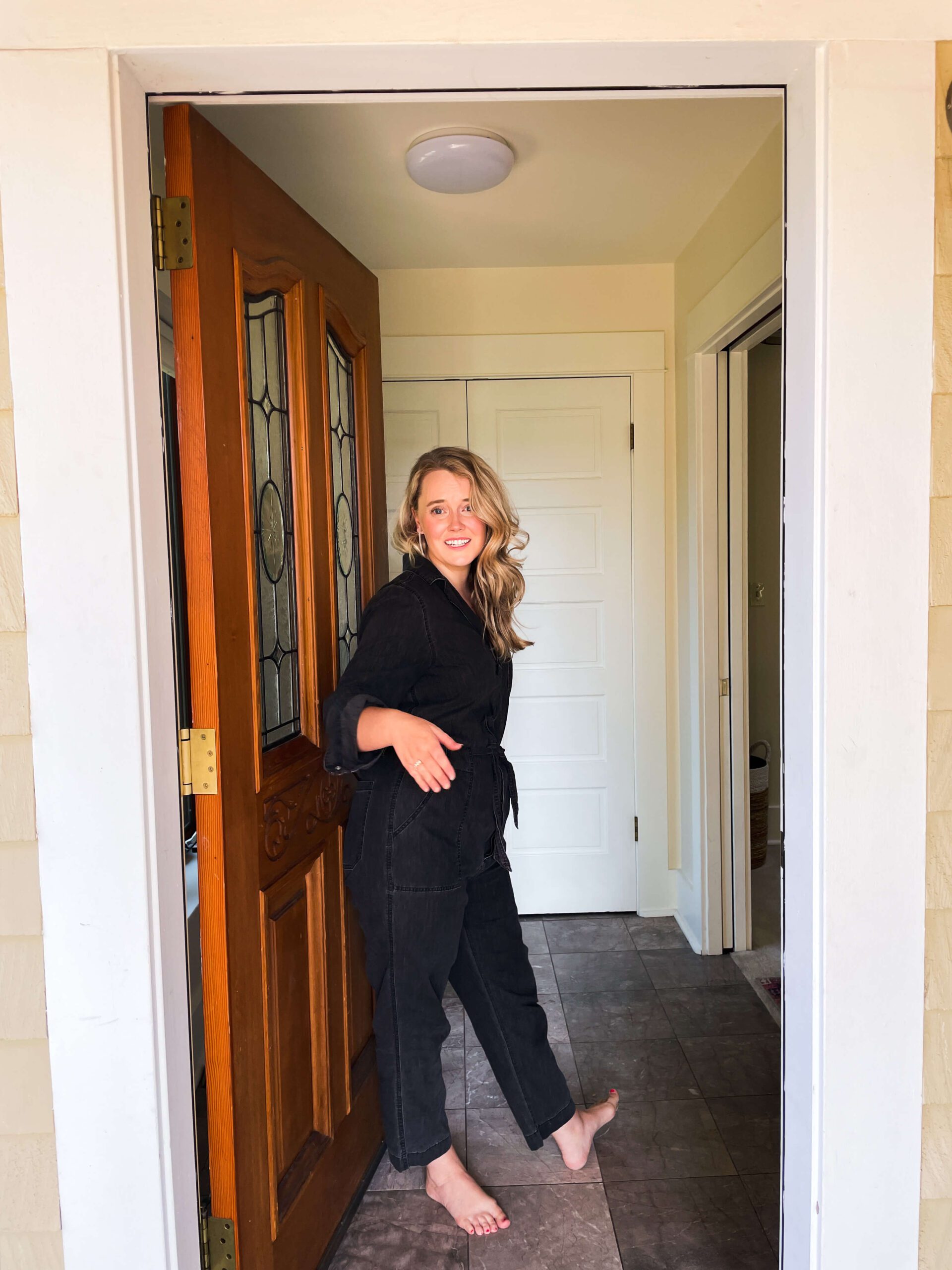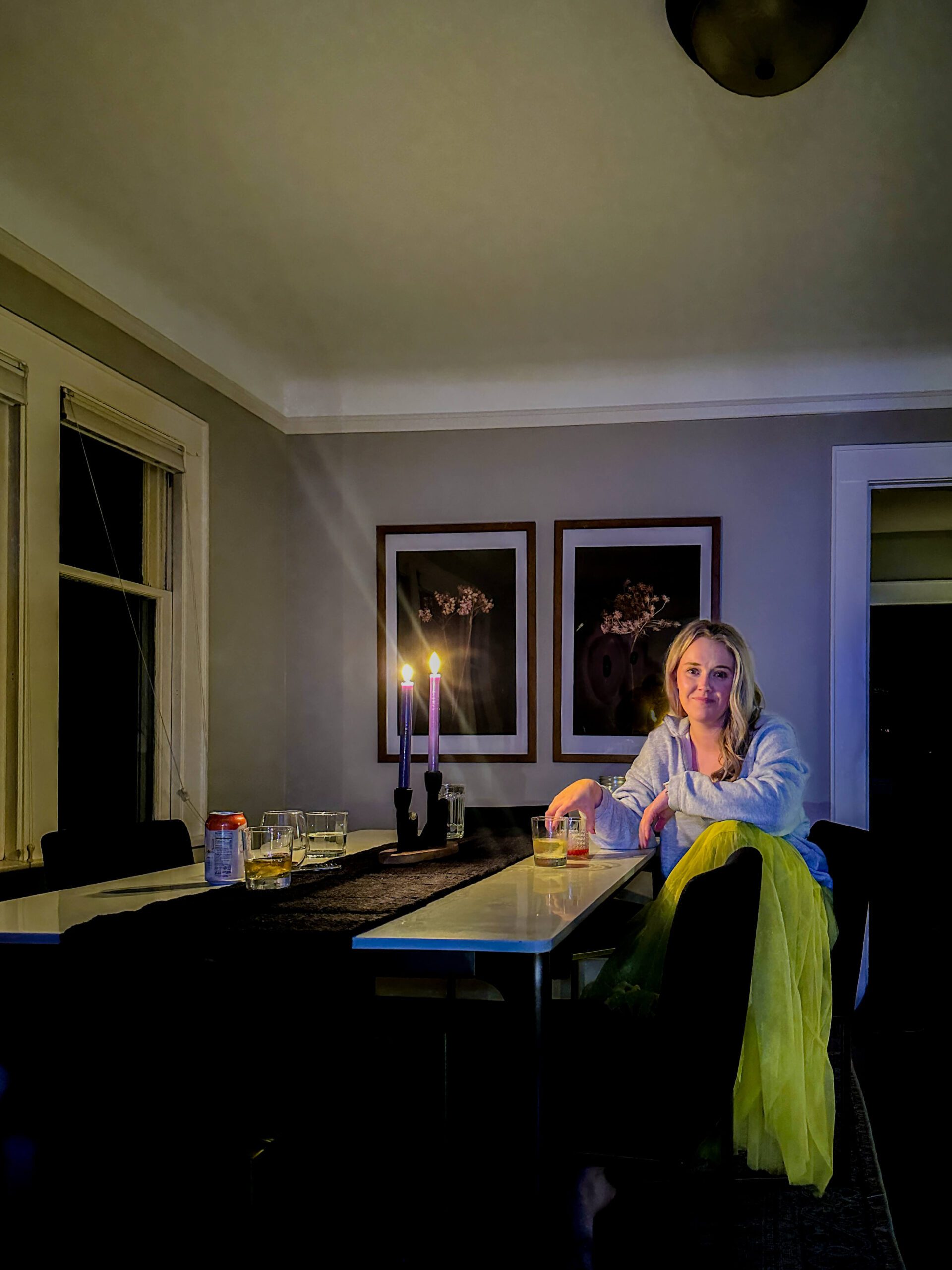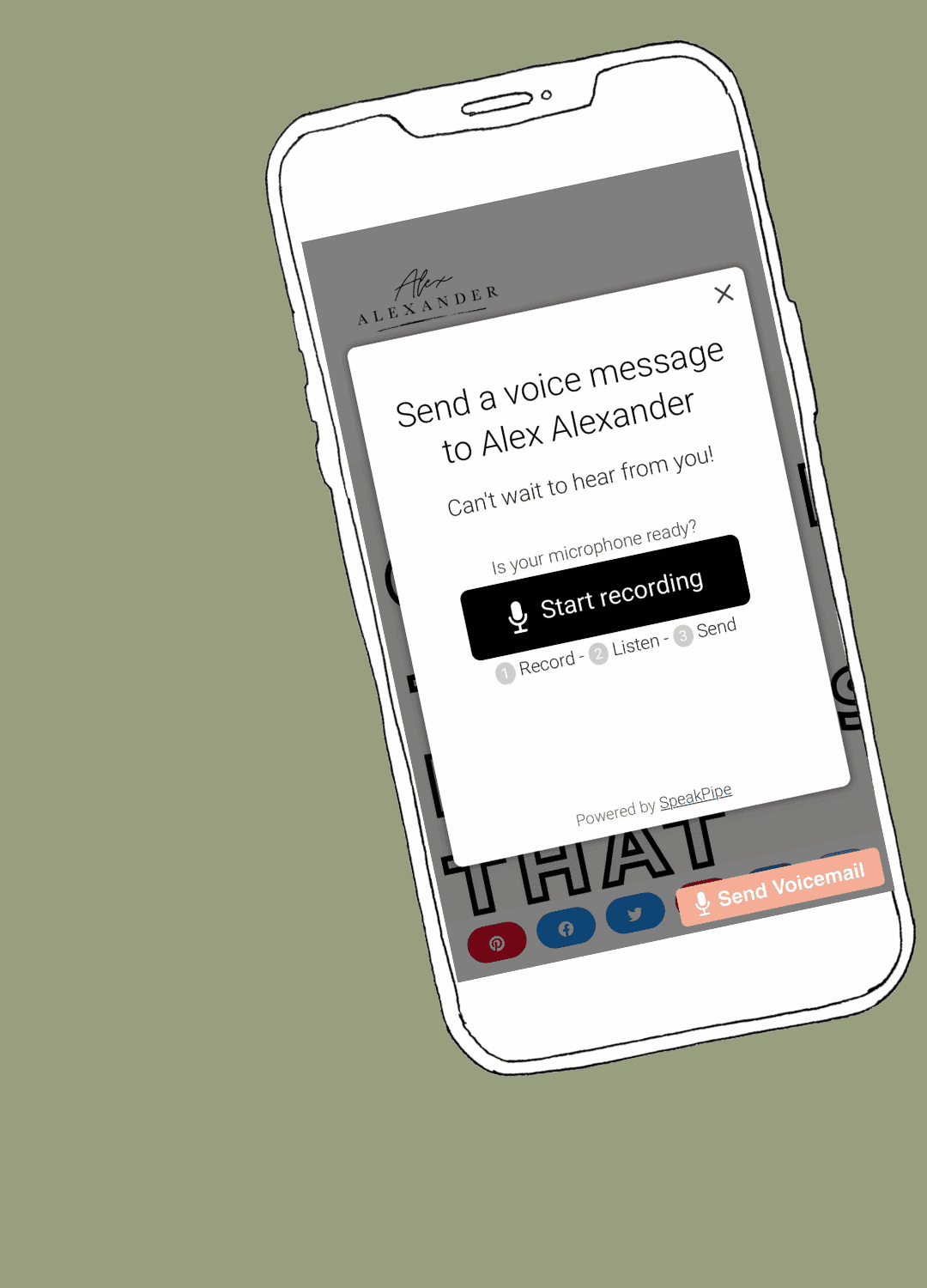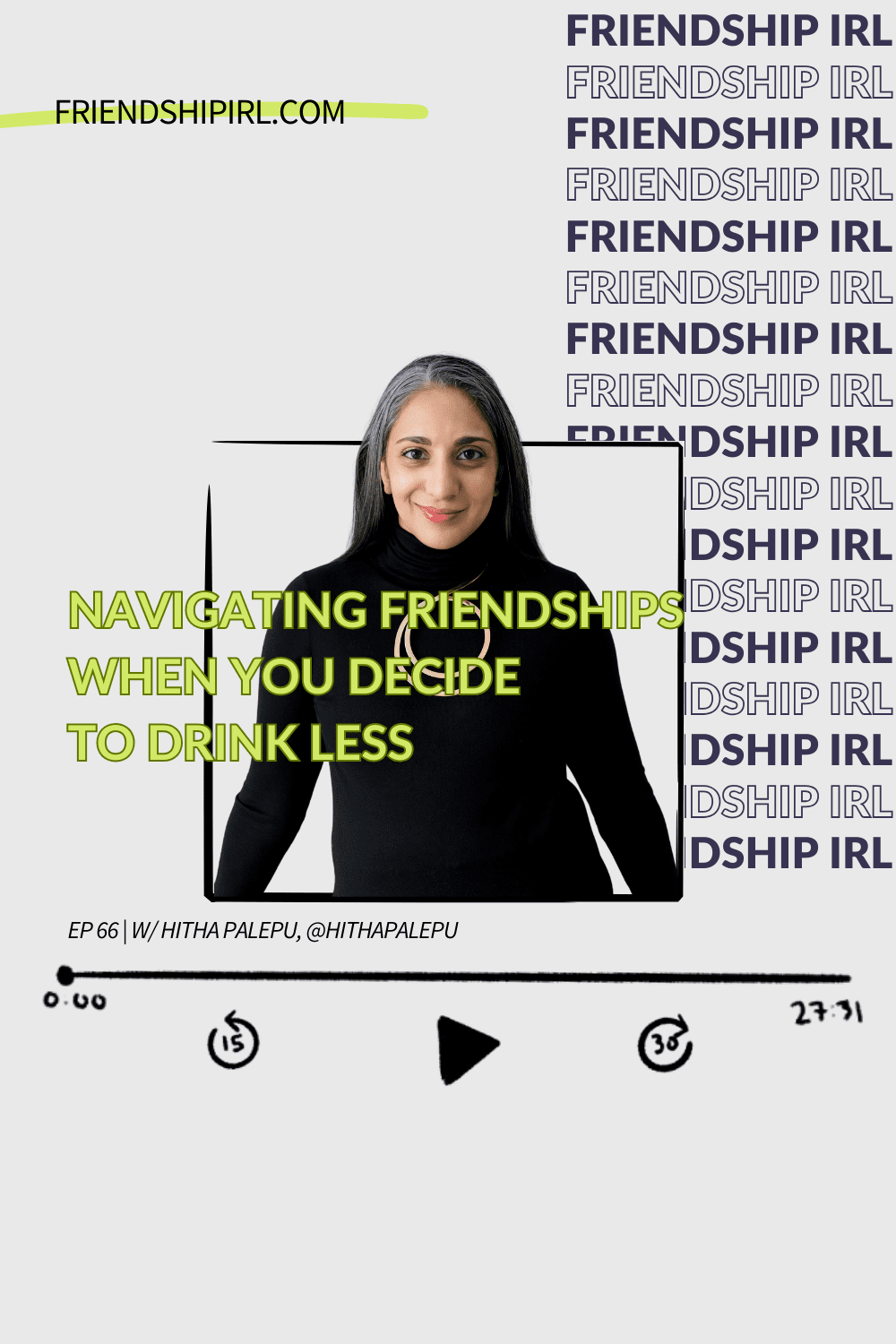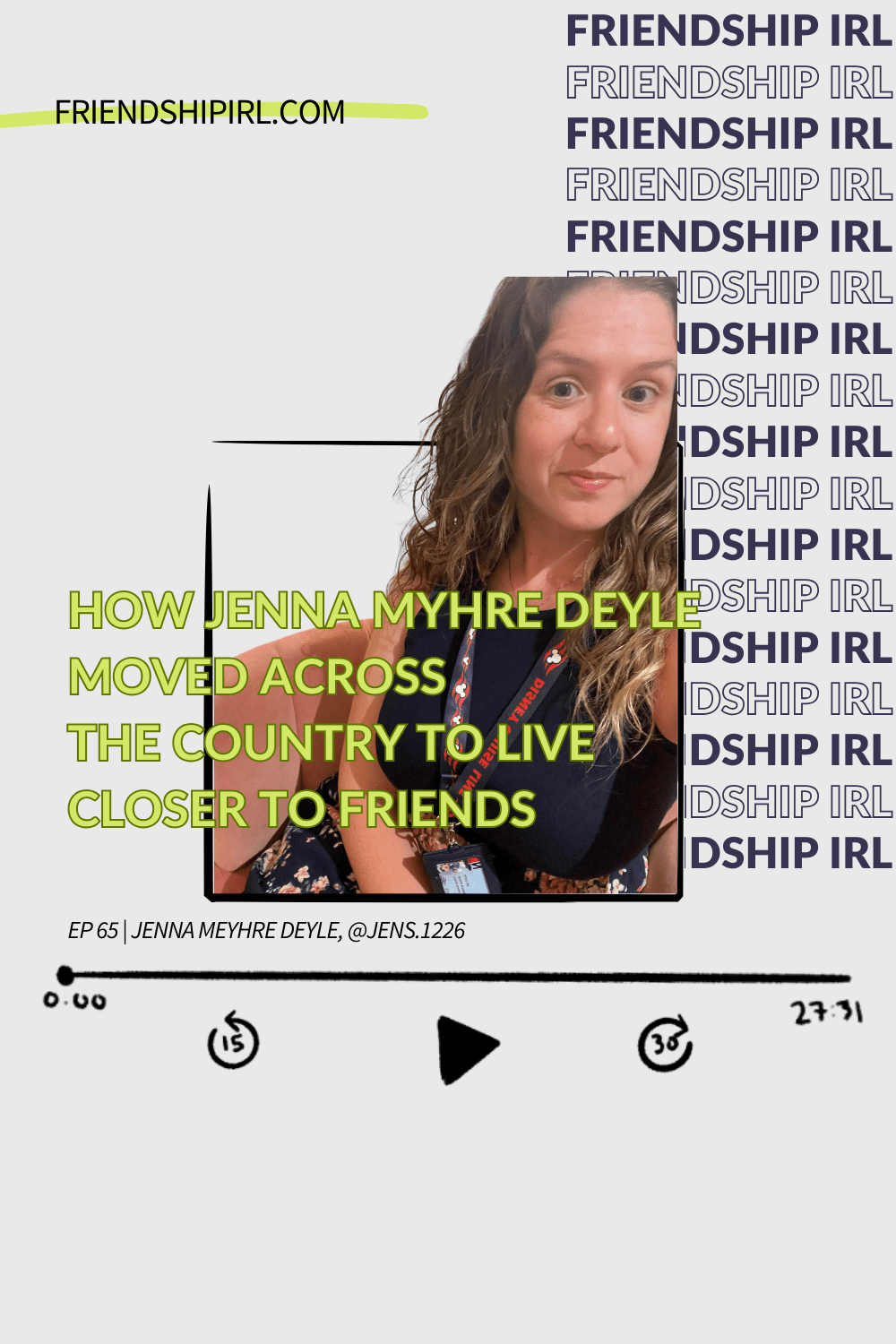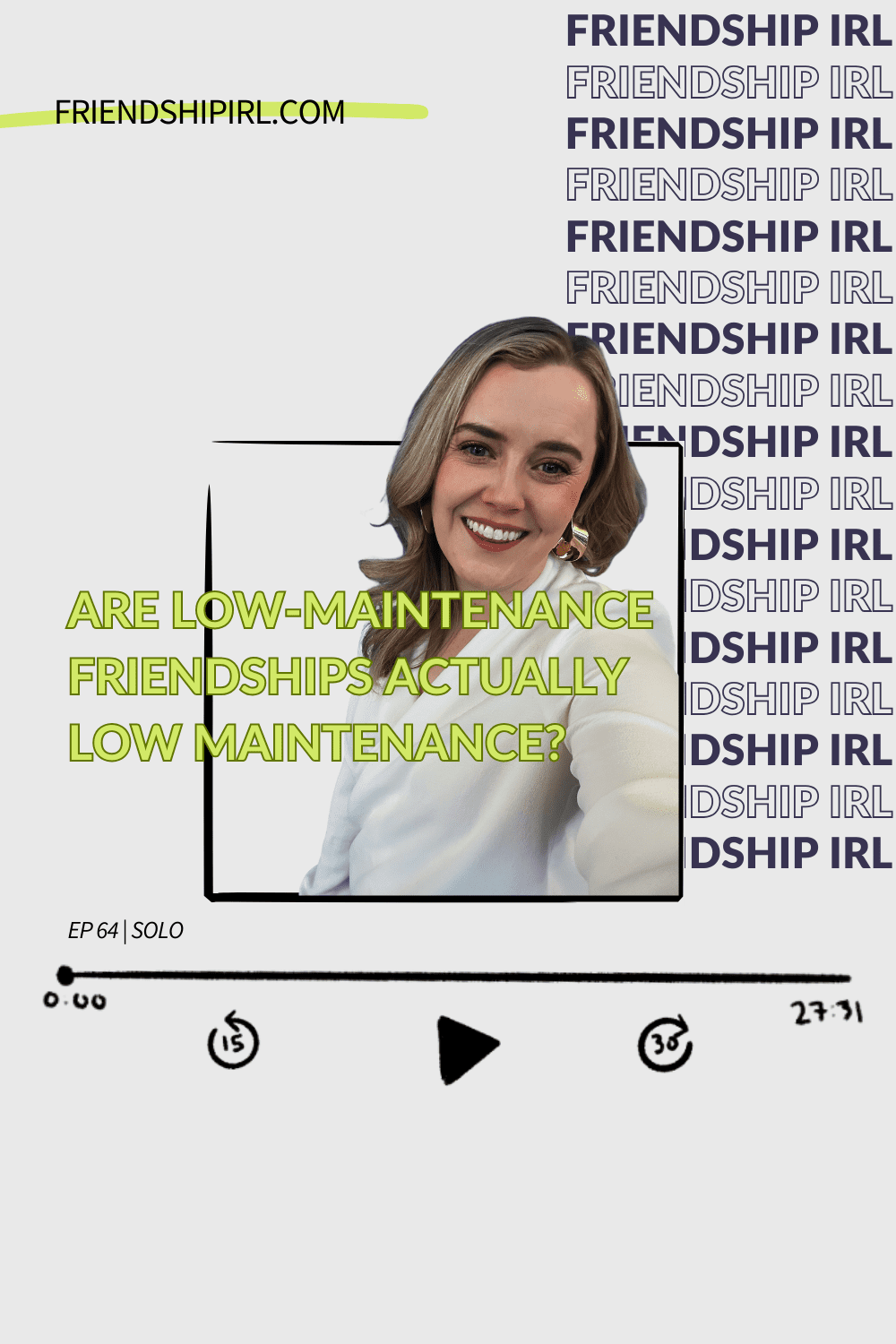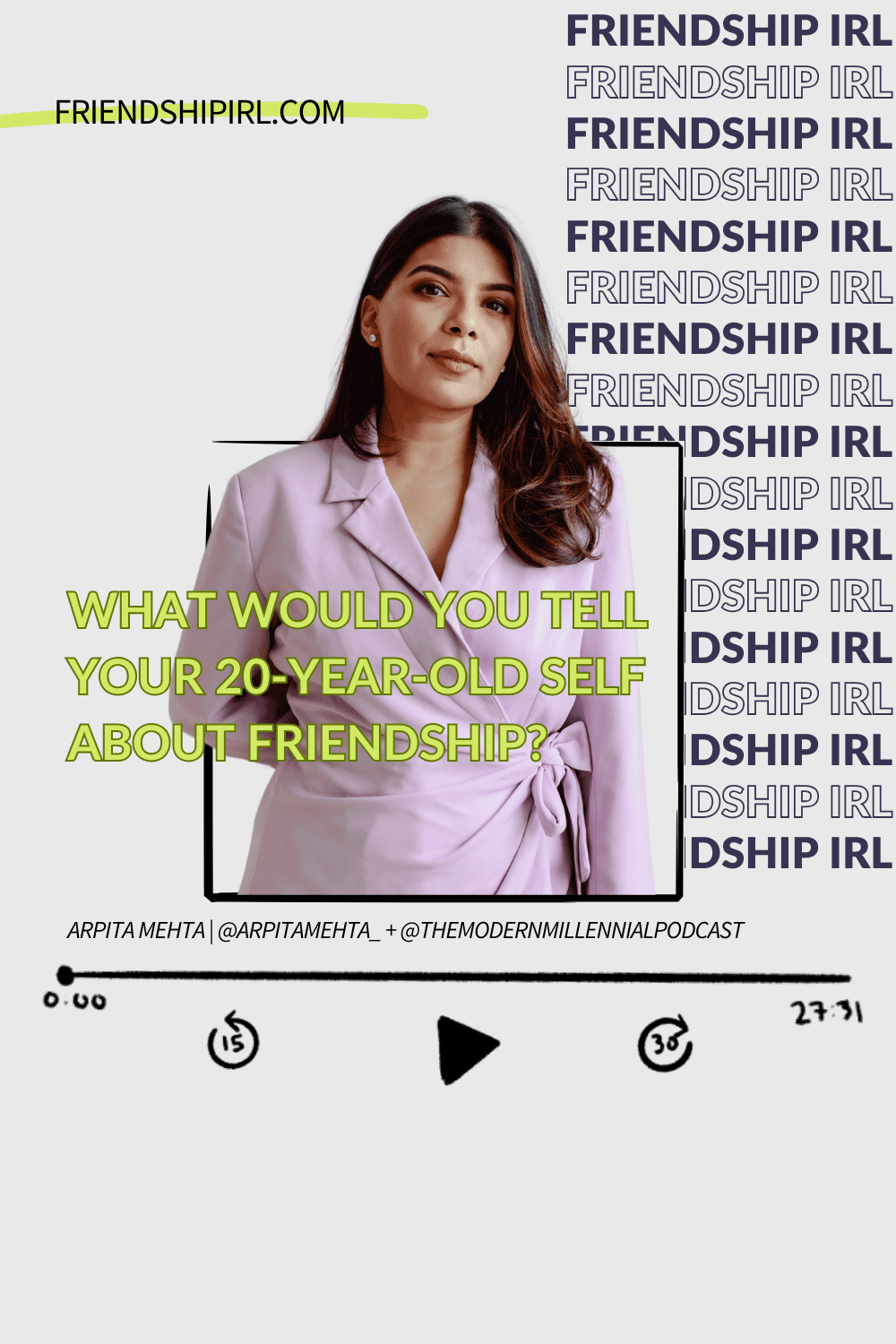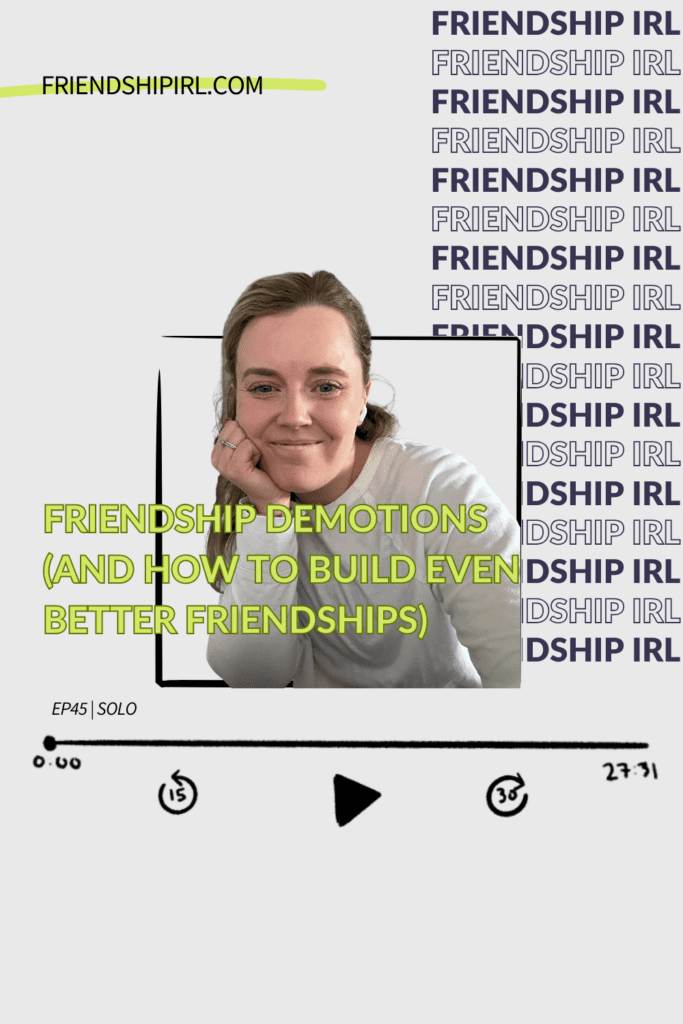
Podcast Description
Recently, somebody asked me how to go about friendship demotions.
I think it’s super common to go through a season in friendships where things feel good – and then, something changes. We aren’t talking about these friendship shifts enough. But “demoting” a friend has a bad feeling to it. Instead, what if we talked about building a better version of friendship for right now?
That’s what today’s episode is about – reframing the idea of a friendship demotion and offering 3 “do-the-work” options.
It will likely take time for these changes to become normal, but I hope this episode provides insight into how you might create new, beautiful versions of your friendships that suit your lives right now.
In this episode you’ll hear about:
- Friendship as a “plate” with things that keep getting added onto it – which often isn’t sustainable long-term
- Getting more specific about what we expect from our friends and what they expect from us, and allowing for adjustments as time goes on
- Questions to ask yourself, such as, what do you enjoy about this friendship? How do you feel most supported by it? What’s meaningful about it to you?
- The myth of the no-sweat, no-conflict relationship, and asking yourself what work you’re willing to do
- Focusing on feelings in the midst of friendship conflicts and brainstorming how you both can “win”
Reflection Question:
Do you have a friendship that has changed over time? What caused those changes? And how did you go about facilitating them? Did it involve a conversation, or did it naturally evolve?
Notable Quotes from Alex:
“In a world where we’re pretty much all constantly wandering around, worrying that we’re not enough, we can tell our friends and ourselves exactly how to be enough for each other. What a beautiful gift that is. And that way, it sure as heck doesn’t feel like a demotion. It feels like we’ve just given a guiding light, a roadmap for exactly how to show up for each other. And the way that works right now may not work a year, five years, 10 years, or even three months from now. Which is why talking about this stuff and checking in is important. Then you can constantly be doing this adjustment in your friendship.”
“We’ve been told that friendships should just be easy. That true friends just happen. There are no-sweat relationships. If there is any conflict, it’s not worth it. Cut it out. Basically, we’re not going to have to do any work. And I hate to break it to you, but every relationship requires work. Sure, you might be too old to get in a fight about it, but a fight and healthy conflict are very different things. Conflict is actually super healthy for relationships if it’s approached in a healthy way.”
Leave Alex a voicemail!
Until next time…
Take the conversation beyond the new podcast on friendship! Follow Alex on Instagram (@itsalexalexander) or Tiktok (@itsalexalexander), or send her a voice message directly with all your friendship thoughts, problems, and triumphs by heading to AlexAlex.chat and hitting record.
Episode Transcript
Podcast Intro/Outro 00:02
Alrighty, gang. Here’s to nights that turn into mornings and friends that turn in family. Cheers!
Podcast Intro/Outro 00:18
Hello, Hello, and welcome to the Friendship IRL podcast. I’m your host, Alex Alexander. My friends… They would tell you; I like to ask the hard questions. You know who I am in the group? I’m the person that’s saying, “Okay, I’m going to ask this question, but don’t feel like you have to answer it.” And now, I can be that friend for you, too.
Alex Alexander 00:50
I have mentioned before that my Instagram DMs and the voice memo option, I have to go to my website or my social media and send me a voice memo, they’re kind of like a confessional. And I love it. I love it. Because, one, we’re not talking enough about this stuff. So I get that I’m an easy place. Everybody knows I’m interested in talking about this. Two, because I can never, ever say that I know all the lived experiences of friendship out there, there’s no way. Totally impossible. So it’s really great, truly for me to hear how people are feeling in their friendships, because then it gives me some sense of what other people’s lived experiences are. Today’s episode is about a topic that I may have heard people talk about this, but I don’t know of anybody… I’ve had anybody be so direct. Because somebody messaged me, and they were like, “Hey, can you give me the steps? How should I go about demoting a friend?” And as normally happens in these DMS, I’m like, “Okay, I need a little bit more context. Like, what is going on here before I started saying anything?”
Alex Alexander 02:13
So this person told me that, you know, their friend needs to show up in certain ways. And they just really aren’t showing up in the ways that they expect a friend to show up anymore. You know, that they can’t go to them for everything. So maybe this person is now just like more of an acquaintance than a friend because they have this really high expectation, and their friend just doesn’t seem to be able to fill it. And they want to stop being disappointed in them. Because they care about them. Because they like this relationship. And they closed it out. And they said, “You know, I’m past the point in my life where I want to have a fight about this with my friend.” Like I get it. That’s a pretty intense situation. I think it’s super common to go through a season with your friends where things feel good. You’re having fun, you’re enjoying your time together, you’re supporting each other, you’re doing whatever you’re supposed to be doing. And then something changes.
Alex Alexander 03:13
And it just doesn’t feel right anymore. And you don’t quite know why. Because you’re only one half of the relationship. Or maybe because you haven’t done your own reflecting. And now you’re trying to come up with a solution to salvage this friendship, because you really do enjoy it, normally. So today, I want to offer you a reframe. First of all, let’s reframe this idea of a friend motion. And then I want to give you what I’m going to call three do-the-work options. So to begin, let’s talk about the reframe. Let’s talk about just this idea of quote unquote, “demoting a friend” overall. The idea of a demotion is kind of this, you versus them idea. We’re not approaching this as you and your friend versus the problem or you and your friend and this relationship. It’s like you versus them. So you’re not considering how they see you. Maybe they don’t feel as close to you as you do. Maybe something in you has shifted. And I just point that out. Because quite often, I think when we’re looking at our relationships, we’re looking at like me versus the friend, instead of looking at me in this relationship with another person. Like the goal is for the relationship to win, not for me to win or you to win. It’s how do we work together to keep the relationship feeling good? It’s like a third party kind of in there. The other thing I don’t like about this term demotion is that it really assumes that there’s some sort of peak version of our friendships. And I think that’s how a lot of people see their friendships. If you go back, and you listen to, I think it’s episode three, which is what is a friend, I talk a lot about this. But most people, most societal messages have really told us that we get closer and closer and closer to our friends. And if they kind of go up and up and up and up, and they maybe have a bump here or there, but they just keep getting better. So when we have whatever this peak is, and then something happens, and we don’t really feel like we’re at that peak anymore, nobody talks about what to do, then. It’s like, we keep adding to each other’s plates, all these expectations and responsibilities. Like, oh, here’s another serving. And here’s another survey, and a little bit more for you. But no, no, no, no, don’t… we’re not going to readjust the portions, I’m not going to take anything off, I’m just going to keep adding to your list forever and ever, and ever. And if you think about that plate in front of you, do you want that? Because it probably feels pretty impossible to meet all those expectations, probably doesn’t feel very fair, doesn’t feel very sustainable, in whatever season of life you’re in. So I would venture to say that instead of looking at it as this peak of like collecting all these responsibilities and expectations, maybe the best version is actually the one where we’re constantly adjusting, where we’re shifting, where we give each other a little reprieve and like a season of life, that’s extra hard. A realignment, a transformation, a release. Sometimes I think the kindest thing we can do to our friendships, is to get more specific about what we expect from our friends, what they expect from us, what’s meaningful. And that might actually be the better question now that I’ve said it. Instead of what do we expect, what do you enjoy about this friendship? What is meaningful about it to you? How do you feel most supported by it? And let those guide your expectations, don’t just pick a bunch of arbitrary things, because a “friend” quote unquote, should do that. No. Get specific about what feels impactful to you and let your friend do the same and let that guide your expectations. That also is going to be helpful, because it’s going to give some meaning behind why you’re maybe doing something that isn’t your first inclination. Like if your friend really wants to hear from you once a week, and you feel like that’s a lot, but you know, now why it’s meaningful to them, it might be the reason why you’re willing to do it. So the overall concept of readjusting your friendships isn’t a bad thing. It’s actually I think, like a favor to each other, a kindness. In a world where we’re pretty much all constantly wandering around worrying that we’re not enough, we can tell our friends and ourselves exactly how to be enough for each other. Like, what a beautiful gift that it’s. Everything about that way sure as heck doesn’t feel like a demotion. Feels like we’ve just given a guiding light, a roadmap for exactly how to show up for each other. And the way that works right now, may not work a year, five years, 10 years, even three months from now. Which is why talking about this stuff and checking in is important, because then you can constantly be doing this adjustment in your friendship. So now I want to dive in to how we do this. How do we lean into this idea of realigning our friendships? I may give you three options. Three do the work options. The first option is touching back on my original conversation with the message about how, you know, I’m just past the point in life where I want to fight about this. Which when I heard it, I thought, okay, somewhere for a lot of people along the lines, we’ve been told that friendships should just be easy, that true friends just happen. There’s no sweat relationships. If there is any conflict, it’s not worth it, cut it out. Basically, we’re not going to have to do any work. And I hate to break it to you but every relationship requires work. The other piece is, a sure yeah, you might be too old to get in a fight about it. But a fight and healthy conflict are very different things. Conflict is actually super healthy for our relationships if it’s approached in a healthy way. I’ll talk more about that later. But conflict encourages a deeper understanding. It improves our communication. It helps us progress towards a more fulfilling relationship for each person in our current moment in life. I’ve asked before, like what is a friend? Something I find funny about friendship is that, whereas other relationships, we kind of know what the outcome is, friendship is very open ended. And I think that sometimes trips people up, right, because then we just keep shoving more on people’s plates. But if we really sit down and think about, like, what is the goal of this friendship? What are the ways that it’s nourishing and positive and fun, what do we appreciate about it, then that gives us kind of this guiding light of how we direct our conflict in a healthy way to move towards more of that, more of whatever feels right, and feels good about this friendship? So I guess the do-the-work option number one is, you see this as a fight. You don’t want to do it, you believe you’re at a point in life where you don’t want to have this fight with your friends. Okay. You don’t do that. Let’s say, because I’ve said this before social media, let’s say you don’t do that work. You’re doing the work no matter what. What I mean by that is, if you just say I don’t want to do this, I don’t want any conflict, I don’t want any fights, you either keep showing up to this friendship. And you show up as this old version of yourself, you’re trying to fit into the box. But it’s not very comfortable in the box, it’s a lot of work. And over time, you likely don’t really want to show up to that friendship anymore. Because it feels like work to show up every time because you’re trying to morph yourself into something that you are not anymore, you’ve outgrown that.
WANT DEEPER FRIENDSHIPS?
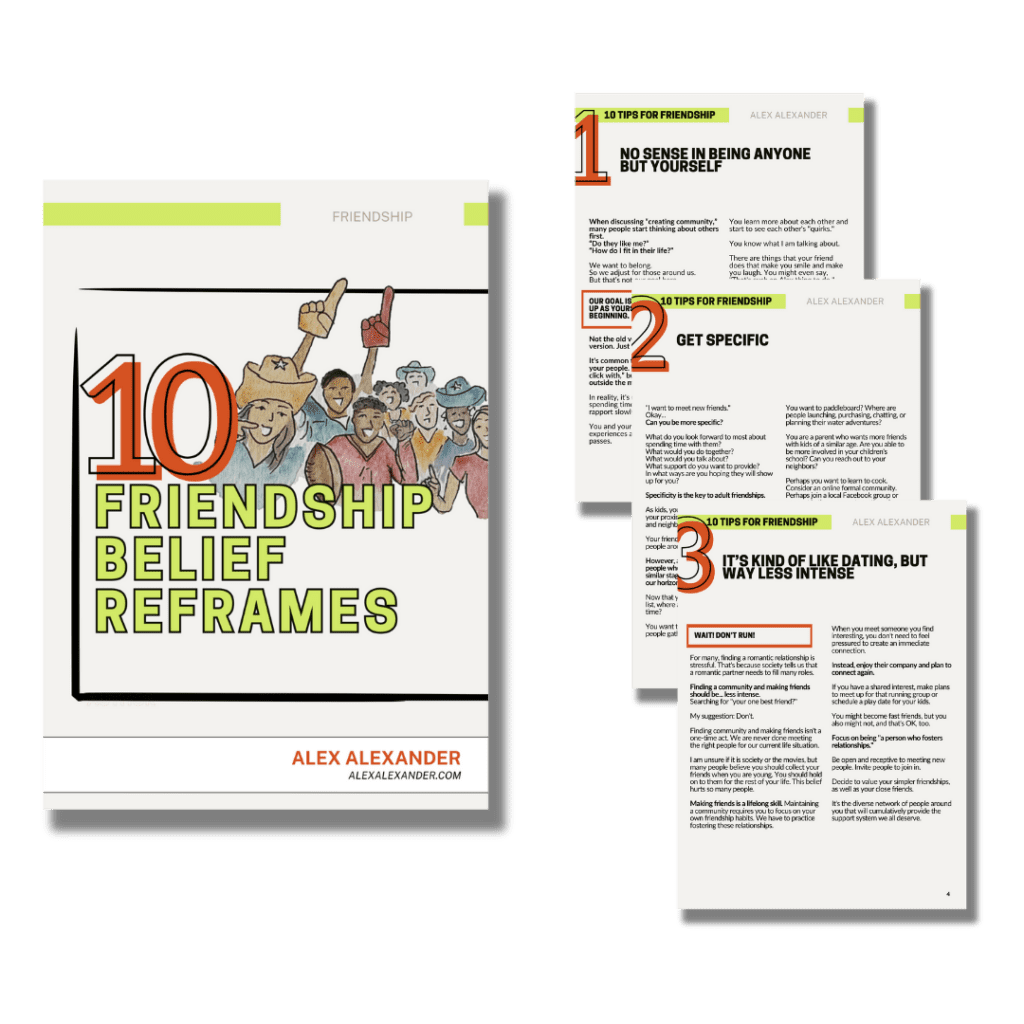
I AM GIVING AWAY MY SECRETS TO BETTER FRIENDSHIPS.
Reinvigorate your friendships and learn how to create stronger ones by incorporating my Top Friendship Reframes into your life. BONUS! An exclusive look at my upcoming book. Want to bring more purpose and value to the relationships that matter to you? Download the guide now.
Alex Alexander 11:56
But that’s still work. If you don’t do the “work”, quote, unquote, if you don’t do the fight, if you don’t approach the conflict, and you’re sitting in this hard work still, the other thing is, you might just cut this friendship off. And then you still have to do the work of mourning what you lost, and putting yourself out there to try to find something else that fills its place. Whether that’s a person, or a hobby, or your own self-work or something, no matter what, you’re gonna have to do some work somewhere. The second do-the-work option is to do it all yourself. So you decide that something about this friendship needs to shift or change or transform. But you don’t want to have the conversation about it, you want to just figure it out yourself. So the hard work there would be to look at yourself, what expectations do you have of this friendship? Are you defaulting to old expectations in a new season of life? Maybe you say to yourself, I’m just going to really lower my expectations, which when somebody tells me, they’re just going to start seeing somebody that they consider a friend as an acquaintance. That’s what we’re doing, we’re just dropping our expectations to the bottom. And when you do that, you still have to mourn the fact that you’re not that close to this person anymore. You still have to find other places to go for the things that you sought them out for. Another do-he-work option might be looking and realizing that the reason you’re so frustrated with this friendship, is because it really is your main friendship, because you’re really, really dependent on it for a lot of things. You put a lot of things on that plate, and you don’t really have an idea of where you would spread those out to. And if that’s the case, then I understand why you’re feeling really inclined to want to control your expectations and their actions and how they show up. Because this is it for you. So if that’s the case, then this do-it-all-yourself work is looking at your support system overall. All of the do-it-yourself work, it’s not to say you would never do this. But if you did all of this, if you totally shifted your expectations. If you didn’t go to your friends for things that they expected you to go to them for, if you suddenly realized that you were really dependent on this relationship, and you needed to add more support to your life, even if you make all those changes, there’s still going to be the work of the fact that your friend has no clue what’s going on. And as your actions change, they’re going to wonder what’s happening to this friendship. And that frustration and overwhelm and what did I do wrong? Is it my fault, is likely going to make them pull back even more. So do-the-work option number two is to kind of just try and do it all yourself. There are a dozen ways more that I could list how you could do it all yourself. But the overall idea here is, you are still picking your side versus their side instead of looking at it with like, how can you both invest in the relationship kind of that like third party in there? So now let’s talk about do-the-work option number three, which is the one I would suggest. But hey, who am I? And that would be to approach this as a growth opportunity and do the work together. Now, if you are somebody who is not very practiced in healthy conflict, you know, somebody asked me recently, like, where do I go to read about this? You can go online, there are books about this stuff. However, I also just think treading lightly, approaching it with curiosity trying and failing, like, that’s what’s going to get you there. So my suggestion would be if you are in a situation where you want to reframe, and realign your friendship, it would be to have a conversation. And when you approach your friend, you want to focus on you and your friend versus the problem. You might say something like, “Hey, I have been feeling like our friendship doesn’t quite feel the same anymore. And maybe we could talk about ways for it to feel good, with all the changes that have been happening.” So it’s not, they’re a bad person, they did something wrong. It is, I want our friendship to feel good again. When you approach this conversation, focus on how you feel. I feel sad that things have changed. I want to find ways to feel like we’re connecting regularly again. And then when you have this conversation, make sure you’re listening. It’s likely that they also have feelings, and that there was some sort of misalignment. Listen for what feels like a win for them. Can their win work for you? How does that feel for you? Can you do that? And then another tactic is actually just to brainstorm. What if we picked a new activity to do together? Just throw them out and see what lands because something that you might have assumed wouldn’t align for them might actually feel like a good fit. But you had just told yourself, it wouldn’t work. And then my final piece here with doing the work and approaching the conversation is to realize that this is ongoing. This might take a little time. That when you walk away, and you’ve brainstormed, you’ve maybe picked an action. It takes a while for that action to become normal, and you’re still allowing this period of realignment. So you kind of want to allow it to sit, watch it play out, continue to have conversations and check in, hey, I know we’re trying that thing, doesn’t feel good for you. And you can’t really expect it to change overnight. Because you need some time to wrap your head around it and get used to it. And so did I. Now, my final piece of this is that when you are talking about these friendship, realignments, you don’t need to go out there. Hopefully we’ve reframed this idea that it’s some lesser than version. I hope you walk away from this scene that actually this is just a better version, because it’s the version that feels good right now. That other version? It was great, it was beautiful. But now we’re building the new, right, beautiful version. And when you are out there talking about this, it’s not that your friendship is lesser than or you had to let some things go. But instead, it’s stronger. Because you both put in the work to prioritize this friendship to make it work in its new version. So really, like this is a celebration. And also, hopefully, it’s an inspiration for you, for the friend, for other people around you. That you can say, “Yeah, you know, that was a rough period when she moved away or when this happened. But we figured out a new normal.” And maybe in doing that, and being I think open about it, not feeling like there’s anything bad or shameful about helping our friendships realign, if we can celebrate it and see it as a good thing, maybe we’ll talk about it a little bit more. Why do I say that? Because we aren’t talking about these shifts enough. Right? I mentioned in the beginning that people are coming into my dance. Like, how do I demote a friend? The idea of demoting a friend is a bad feeling to it. It’s sad, it’s over. It’s negative, it’s limiting. And if instead, we can talk about when it all shakes out, when it all feels good, if you can say, yeah, you know, we worked through that. We built a better version of our friendship for right now. That maybe more people will realize that we don’t need to be out here demoting friends. We just need to be approaching healthy conflict and leaning in and having the conversations so that we can reimagine our friendships, so they feel good in this current moment in life.
Podcast Intro/Outro 20:52
Thank you for listening to this episode of Friendship IRL. I am so honored to have these conversations with you. But don’t let the chat die here. Send me a voice message. I created a special website just to chat with you. You can find it at alexalex.chat. You can also find me on Instagram. My handle, @itsalexalexander. Or go ahead and leave a review wherever you prefer to listen to podcasts. Now if you want to take this conversation a step further, send this episode to a friend. Tell them you found it interesting. And use what we just talked about as a conversation starter the next time you and your friend hang out. No need for a teary Goodbye. I’ll be back with a new episode next week.

